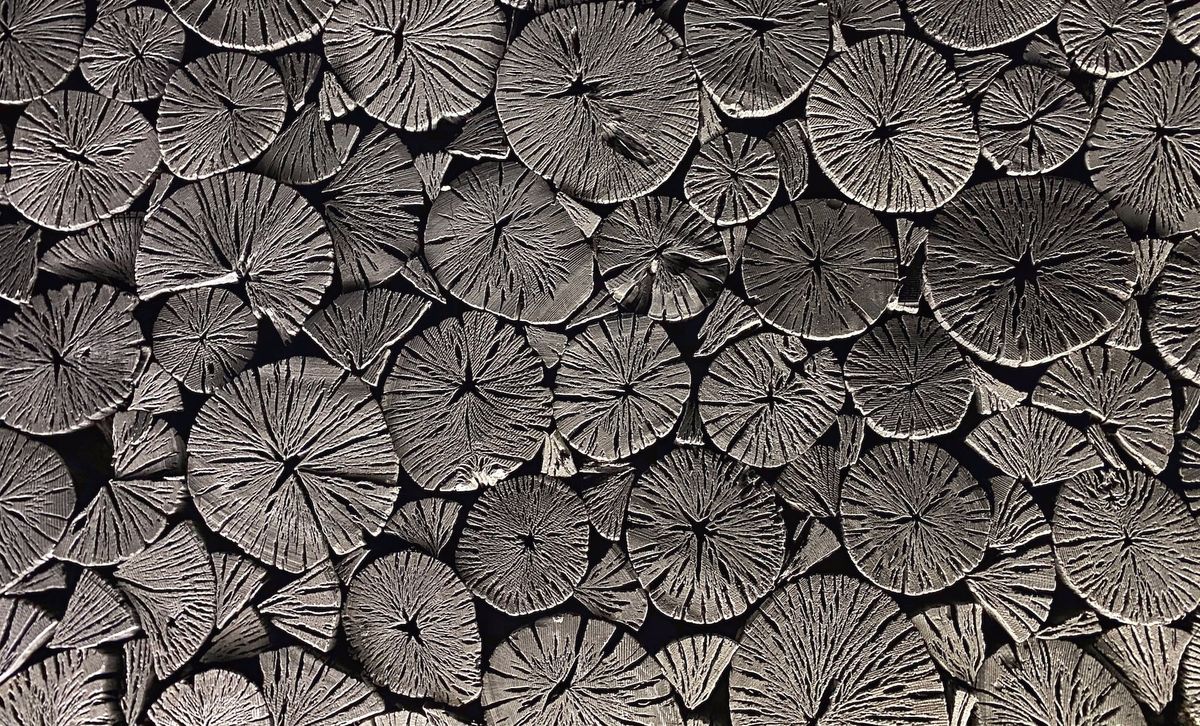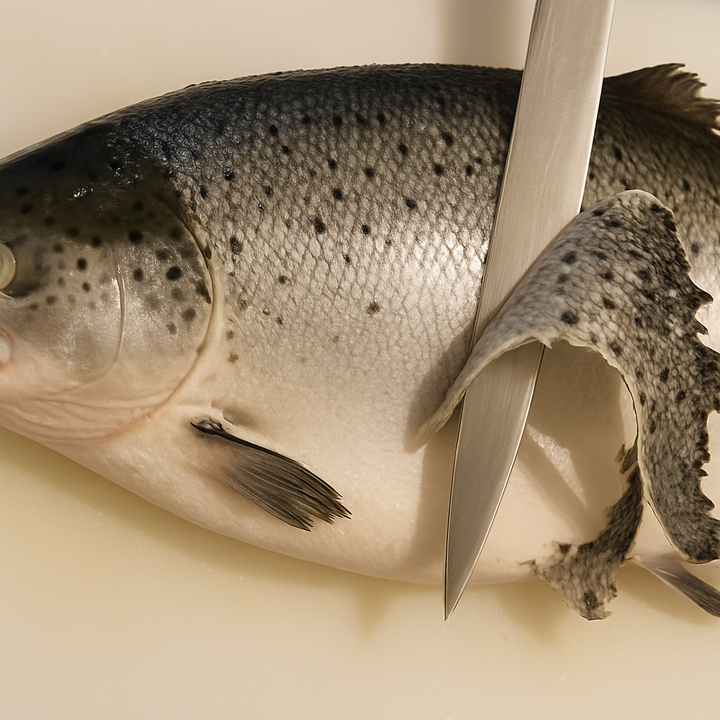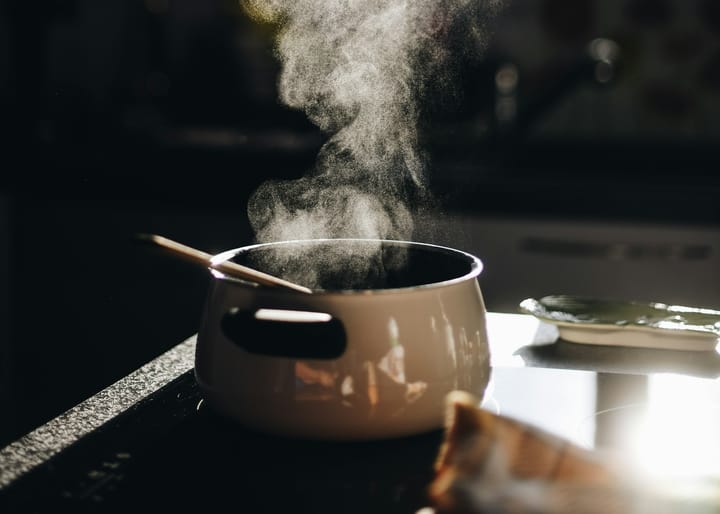Kishu Binchōtan: The Luxury Charcoal Behind Japanese Grilling
Regarded globally as the premier grilling fuel, culinary experts worldwide attest that the unique flavor Kishu Binchotan bestows on meat and seafood is unparalleled by any other charcoal.

Grilling is not just about the ingredients you use, but also about the heat source. And when it comes to the source, not all charcoals are created equal.
Enter Kishu Binchōtan, the crème de la crème of grilling charcoals. Imagine you're standing in front of a grill, the aroma of perfectly seared meat filling the air.
With Binchōtan, the experience is intensified, with each bite tasting richer, more flavorful, and incredibly unforgettable.
What is Binchotan?
Binchō-tan (備長炭), often hailed as white charcoal and originating from Japan, is a distinct form of activated charcoal meticulously crafted from the branches of the ubame oak tree.
Binchō-tan consistently produce high temperatures, marking it as a top-tier choice for grilling.
Chefs worldwide praise its unique ability to elevate dishes like yakitori and unagi. Among its variants, Kishu Binchō-tan is especially esteemed, setting a flavor standard that other charcoals can't match.
What is The Price of White Charcoal?
The Kishu Binchō-tan, a highly sought-after type of charcoal is priced around $40 - $50 per kilogram.
The Origin: Kishu Region
During the Genroku era of the Edo period (1680 to 1709), a skilled artisan named Bichū-ya Chōzaemon began crafting binchō-tan in Tanabe, Wakayama.
The primary ingredient for binchō-tan in Japan has traditionally been oak, especially the ubame oak, which has since been designated as the emblematic tree of Wakayama Prefecture.
Wakayama remains a leading region for premium charcoal, with Minabe town standing out as the top binchō-tan producer in the nation.
The charcoal crafted in Wakayama is distinctively labeled as Kishū binchō-tan, with "Kishū" being Wakayama's historical name.
Beyond its famed fruits like plums and mandarin oranges, Wakayama Prefecture, nestled in the Kansai region, also holds the distinction of crafting possibly the world's most superior grilling charcoal.
Why Kishu Binchōtan is A Cut Above the Rest
You might wonder why this charcoal stands head and shoulders above its counterparts. After all, charcoal is just burnt wood, isn't it? Here's why.
Craftsmanship and Precision
Celebrated by culinary masters globally, binchotan is a premium charcoal, rich in carbon, crafted from oak wood.
Distinct from regular lump charcoals and briquettes, its high carbon concentration ensures it remains fragrance-free, preserving the authentic taste of the food.
A hallmark of genuine binchotan is the faint metallic ring produced when two pieces are struck together.
The creation of binchotan involves a meticulous process. It undergoes slow combustion inside a sealed kiln for an extended period for weeks. During this phase, oxygen levels within the kiln are minimized to facilitate carbonization.
This is followed by a brief exposure to temperatures soaring beyond 1000°C. Once extracted from the kiln, it's immediately covered with a mixture of sand, ash, and soil, which imparts its signature white hue.
This rigorous process yields a charcoal dense in nature, with around 93% carbon content. Notably, the binchotan hailing from the Kishu area is revered for its exceptional quality, boasting a carbon concentration of approximately 96%.
Longer Burn, Consistent Heat
One of the standout features of Binchōtan is its incredibly long burn time. A single piece can sustain its heat for an impressive five hours. The consistent radiant heat ensures that your food is cooked evenly, enhancing its taste manifold.
Igniting binchotan charcoal is an experience unlike any other. While it burns remarkably hotter, it produces almost no flames and virtually zero smoke.
However, lighting binchotan does require patience. Typically, it takes around 20 to 25 minutes using a chimney, oven, or direct flame. But once it catches, the reward is a robust, consistent flame.
With temperatures soaring between 500 Celsius and 1000 C, coupled with its minimal odor and smoke, binchotan offers chefs a reliable, high-intensity heat, ensuring nothing distracts from the culinary masterpiece at hand.
A Unique Flavor Profile
Kishu Binchotan, primarily designed for culinary purposes, truly enhances flavors which wonderfully captures the wood's delicate essence.
Being entirely natural without any chemicals, Kishu Binchotan produces an intense heat. This heat tenderly embraces the meat, locking in juices and ensuring a mouth-watering sear, delivering a unique taste.
Unlike many charcoals, it doesn't give off smoke or any unwanted odor. Some even believe it releases healthful far infrared waves, something lesser charcoals can't claim.
In Japan, this prized white charcoal is a top choice for dishes such as yakitori, unagi, robatayaki, and yakiniku. Its singular ability to infuse a unique flavor into meats and seafood sets it leagues apart from other charcoals.
High Demand and Overharvesting
Regrettably, due to Binchotan's esteemed standing, the demand for this exceptionally pure charcoal has surged.
This has led to overharvesting and posed threats to the trees vital for its production.
However, dedicated harvesters are addressing these concerns by embracing sustainable harvesting methods.
They manage vast tracts of land, cultivating Ubame Oak and ensuring they allow adequate regrowth periods before proceeding with subsequent harvests.
The Versatile Uses of Binchotan
Held in high esteem for its supreme heat consistency and pure burn, Binchotan is the backbone of traditional Japanese grilling.
It's an indispensable asset at yakitori establishments, where diverse chicken parts, from the juicy breast to the flavor-packed innards, are masterfully skewered and seared.
It's particularly influential in accentuating the flavors of meats such as wagyu beef and lamb, but the crown jewel is arguably the saba shioyaki (salted mackerel).
Similarly, at kabayaki establishments, the foundational technique centers on the artful grilling of eel (unagi) via white charcoal.
Drawing cues from Korean barbecue, yakiniku eateries present an array of meats, predominantly thin-sliced beef and pork, tailored for skewering. These spots champion bite-sized meat delights, best enjoyed amidst spirited conversations and hearty drinks.
What sets binchotan apart is its ability to maintain consistent, high temperatures without releasing smoke or residual aromas, making it perfect for seafood, vegetables, and specialties like unagi.
Venturing beyond the realm of grilling, Binchotan has also found its place in coffee roasting. Its precise temperature control is pivotal in unlocking the nuanced flavors within coffee beans, ensuring they're neither undercooked nor scorched.


